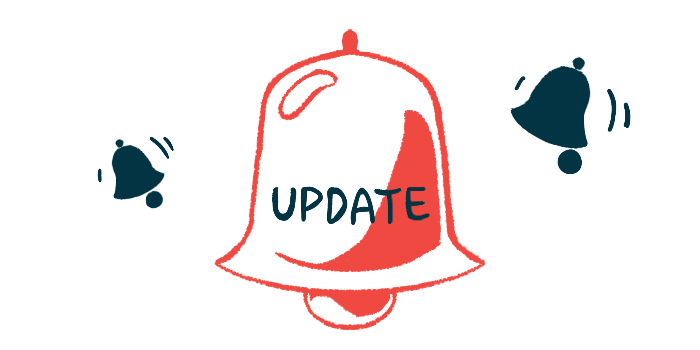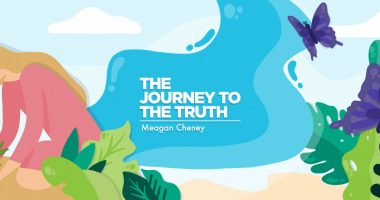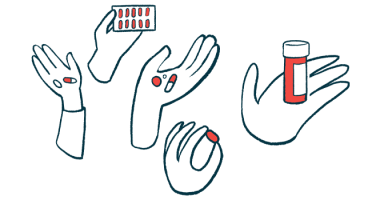Long-term Epidiolex Safe, Effective for TSC Patients: 3-year Trial Data
Findings similar to those from Phase 3 trials of cannabidiol in Dravet

Up to three years of treatment with Epidiolex in a clinical trial led to sustained reductions in seizure frequency — with the oral cannabidiol generally well-tolerated — in children and adults with seizures associated with tuberous sclerosis complex (TSC).
That’s according to final data from an open-label extension (OLE) study (NCT02544750) of a placebo-controlled Phase 3 clinical trial (NCT02544763) called GWPCARE6. The trial was funded by Jazz Pharmaceuticals, which markets Epidiolex.
These findings were similar to those from previous Phase 3 trials testing the cannabidiol-based treatment in children with Dravet and Lennox-Gastaut syndromes, the other two forms of epilepsy for which Epidiolex is approved.
The new data were shared in a poster titled “Long-term Safety and Efficacy of Add-on Cannabidiol (CBD) for Seizures Associated with Tuberous Sclerosis Complex (TSC): 3-year Results from GWPCARE6 Open-label Extension (OLE),” at the American Epilepsy Society Annual Meeting, held Dec. 2–6, in Nashville, Tennessee.
“We are sharing long-term Phase 3 trial findings which demonstrate Epidiolex’s ability to reduce tuberous sclerosis complex-related seizures over the course of three years of treatment — further underscoring that Epidiolex is an important treatment option in an area with significant unmet patient need,” Kelvin Tan, senior vice president and chief medical officer of Jazz, said in a company press release.
Epidiolex results from a TSC clinical trial
TSC is a rare genetic condition marked by tumors, usually benign, that grow in the body’s vital organs, including the brain. About 85% of TSC patients develop seizures, and more than 60% are resistant, or refractory, to standard treatments.
As in Dravet, TSC patients experience a range of treatment-resistant seizure types that often emerge in the first year of life. These patients are at an increased risk of autism and intellectual disability.
Originally developed by GW Pharmaceuticals, which was acquired by Jazz in 2021, Epidiolex is an oral solution of highly purified, plant-derived cannabidiol or CBD, the most abundant non-psychoactive cannabinoid compound in the cannabis plant.
CBD can mimic natural compounds that act on brain receptors that appear to regulate seizure activity.
Epidiolex is approved in the U.S. as an add-on treatment for adults and children, ages 1 and older, with seizures. It is indicated for patients with treatment-resistant forms of epilepsy, including Dravet, Lennox-Gastaut syndrome, and TSC.
The treatment’s approval for tuberous sclerosis complex was backed by data from the Phase 3 GWPCARE6 trial, which enrolled 224 treatment-resistant TSC patients, ages 1–65, at sites in the U.S., Europe, Australia, and the U.K.
At the study’s start, the participants had a median age of 10.7 (range: 1.1–56.8 years) and had been taking a median of three anti-seizure medications. Altogether, they experienced a median of 57 monthly seizures.
Participants were randomly assigned to receive either Epidiolex, at a dose of 25 or 50 mg/kg per day, or a placebo for 16 weeks, or about four months.
The trial’s main goal was to assess whether Epidiolex led to a reduction in TSC-associated seizures compared with seizure frequency at the study’s start.
That goal was met, with patients given either Epidiolex dose experiencing about a 48% reduction in seizure frequency compared with 26.5% in the placebo group. Epidiolex also was overall well-tolerated, with the most common side effects being diarrhea and sleepiness.
Epidiolex is an important treatment option in an area with significant unmet patient need
Of the 201 participants who completed the four-month trial, 199 (99%) entered the OLE study, in which all received Epidiolex for a longer period.
The newly presented results concerned final data from the OLE, covering treatment up to 156 weeks, or about three years.
The dose was titrated or adjusted based on each patient’s tolerability and response, with a goal dose of 25 mg/kg daily, and a maximum dose of 50 mg/kg.
Most participants (83%) ultimately withdrew from the OLE study, with 34 people (17%) completing it. The most common reason for trial withdrawal was a transition to the commercial form of the treatment (56%).
During the OLE, patients received the treatment for a median of 631 days, or between 1.5 and two years, and the mean daily dose was 28 mg/kg.
Side effects were reported in 96% of patients, leading to treatment discontinuation in 9%. Serious adverse events were experienced by 28% of patients.
The most commonly reported adverse events were diarrhea (47%), seizures (30%), fever (24%), and decreased appetite (24%).
Seizure frequency was evaluated in 12-week windows throughout follow-up and compared with seizure frequency prior to starting treatment. Observed reductions in seizure frequency ranged from 53–90% throughout follow-up.
The proportion of patients experiencing at least a 50% reduction in seizure frequency — often considered a clinically meaningful drop — ranged from 52–78%. Moreover, 6–31% were entirely seizure-free during follow-up.
Improvements were reported by most patients/caregivers after one year (105 of 118; 89%) and two years (68 of 73; 93%).
Overall, “add-on CBD treatment was well tolerated and produced sustained reductions in TSC-associated seizures for up to 156 [weeks] in patients treated in OLE, supporting long-term use of CBD for treatment of seizures associated with TSC,” the researchers concluded.








